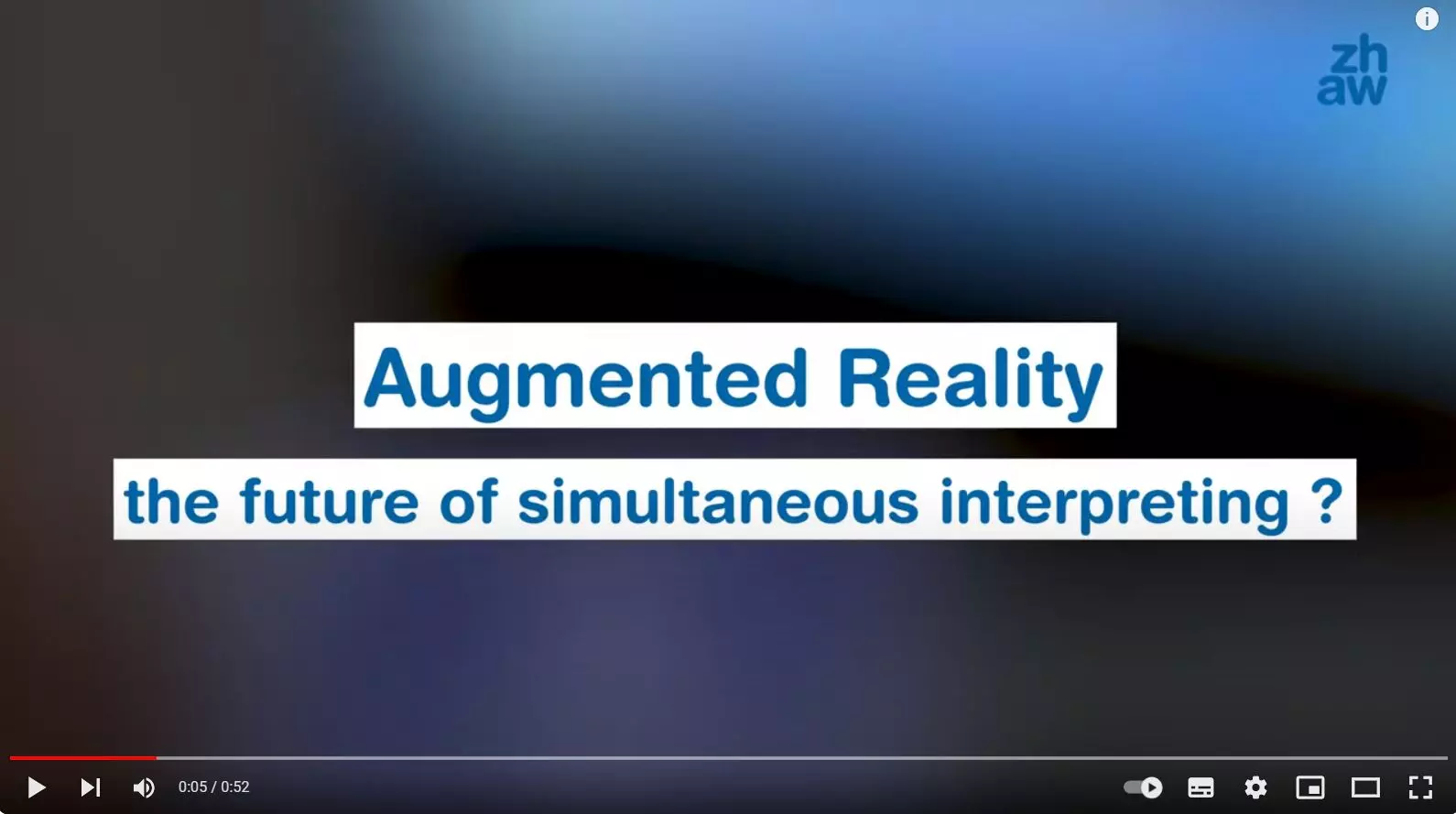Research
The Institute of Multilingual Communication (IMK) investigates and analyses various forms of multilingual communication with a particular focus on the interplay between language technology and human creativity.

The IMK focusses on applied research with a particular emphasis on the practical application of results. Our research partners include universities across Europe, governmental authorities, non-profit organisations (e.g. University Hospital of Basel or Spitex) and businesses (e.g. Supertext, Bhaasha , Ramsen, Swiss TXT, Video to Voice).
In our research, we address questions such as:
- How can monolingual and multilingual texts, discussions and discourses be understood and optimised in terms of their form and impact?
- How can barriers to communication in different contexts and for different target groups, such as people with sensory impairments, be reduced?
- What influences do globalisation, migration and digitalisation have on conference interpreting and community interpreting?
- How can more human-friendly language technology be used and more machine-friendly work processes be organised?
- What is involved in being linguistically creative, and what are the conditions needed for creativity to flourish?
- How do linguistic creativity, intercultural competence, emotional intelligence and domain knowledge contribute to successful multilingual communication?
IMK research foci
Our research teams deal with pioneering topics that are crucial for language mediation in the professional world.
- Translation Studies (Head: Professor Caroline Lehr)
- Interpreting Studies (Head: Professor Michaela Albl-Mikasa)
- Human–Machine Communication (Head: Professor Alice Delorme Benites)
- Creativity and the Language Industry (Head: Professor Chantal Wright)
- Applied Discourse Studies (Head: Professor Ulla Kleinberger)
- Accessibility Studies (Head: Dr. Martin Kappus)
Research projects
Get an overview of the variety of practice-based research projects conducted by our professorships.
All research projects related to the Institute of Multilingual Communication (in German)
Publications
IMK researchers regularly publish their research results in academic publications and present them at international conferences.